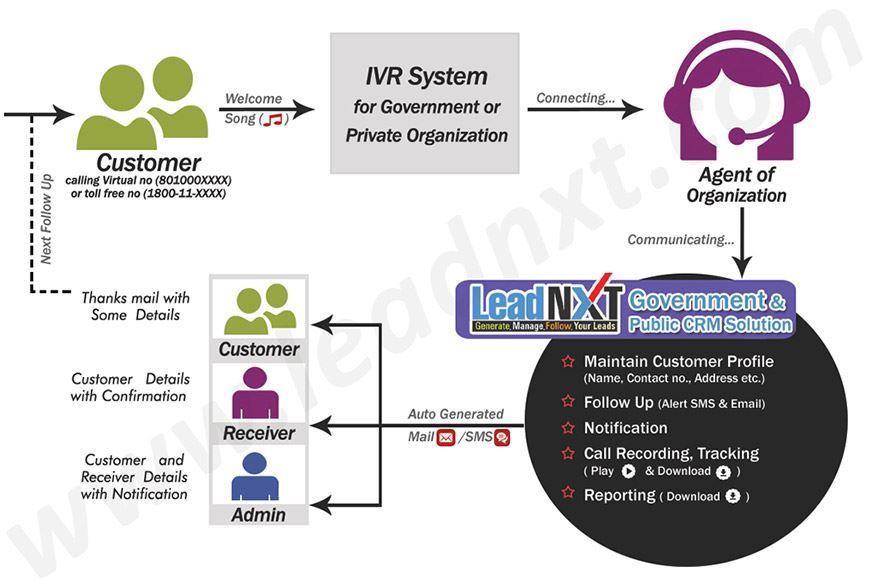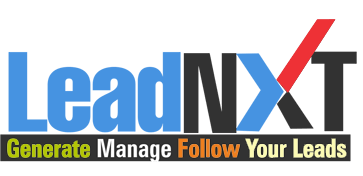Government & Public Sector CRM
Insurance and finance are closely related fields that intersect in various ways, providing individuals, businesses, and institutions with tools for managing risk, securing financial stability, and protecting assets. While insurance focuses on risk management and protecting against losses, finance deals with the management, allocation, and investment of money to grow wealth and achieve financial goals.

Transforming Public Sector Engagement with Advanced CRM Solutions
In today’s digital era, government agencies & public sector organizations must leverage technology to enhance operational efficiency, improve citizen engagement, & streamline service delivery. A robust government & public sector CRM provides an integrated platform to manage interactions, automate workflows, & ensure data-driven decision-making.
Public sector entities face unique challenges, including complex regulatory requirements, growing citizen expectations, & the need for cost-efficient operations. Traditional paper-based processes & outdated legacy systems often slow down services, leading to dissatisfaction & inefficiencies. A modern CRM tailored to the public sector’s needs bridges these gaps by offering automation, enhanced communication, & real-time analytics.
The Need for CRM in the Government & Public Sector
Government bodies handle vast amounts of data, from citizen queries to regulatory compliance & service requests. Traditional methods often lead to inefficiencies, delayed responses, & a lack of transparency. Implementing an advanced CRM tailored for public sector needs helps in:
Enhancing Citizen Engagement: Providing seamless communication channels, automated responses, & self-service portals.
Optimizing Internal Workflows: Automating repetitive tasks, reducing manual workload, & improving inter-departmental collaboration.
Ensuring Data Security & Compliance: Managing sensitive government data with encryption, access controls, & regulatory compliance.
Driving Transparency & Accountability: Enabling real-time tracking of service requests & improving reporting capabilities.
Improving Decision-Making: Offering data analytics & AI-driven insights for policy formulation & resource allocation.
Reducing Costs & Enhancing Efficiency: Automation & digital workflows minimize manual efforts & reduce operational costs.
Facilitating Remote & Hybrid Work: Cloud-based CRM solutions enable seamless collaboration for government employees working remotely.
Key Features of a Government & Public Sector CRM
1. Citizen Relationship Management
A government CRM centralizes citizen data, tracking interactions across multiple channels such as phone, email, chat, & social media. This ensures a unified approach to handling inquiries & resolving issues efficiently.
2. Automated Workflows & Case Management
Managing case lifecycles becomes effortless with automated ticketing systems, task assignments, & progress tracking. This feature enhances service request handling & ensures timely resolutions.
3. Multi-Channel Communication
Public sector organizations can engage with citizens via IVR systems, SMS alerts, chatbots, & email automation, ensuring responsive & real-time communication. AI-powered chatbots & virtual assistants further enhance efficiency by providing instant answers to common queries.
4. Data Security & Compliance
A secure CRM ensures that all sensitive data is protected with robust encryption, access controls, & compliance with industry regulations such as GDPR, HIPAA, & government mandates. Government agencies must adhere to strict cybersecurity standards, & a CRM ensures that sensitive information remains protected against breaches & unauthorized access.
5. AI-Driven Insights & Reporting
Government agencies can leverage AI-powered analytics to assess trends, monitor service performance, & gain insights for better decision-making. Predictive analytics help in resource allocation, identifying service bottlenecks, & enhancing overall public service quality.
6. Integration with Existing Government Systems
A seamless CRM integrates with existing databases, ERP systems, & legacy software to ensure smooth data flow without disruptions. Governments often rely on multiple IT systems, & a well-integrated CRM prevents data silos & improves overall operational efficiency.
Benefits of Implementing a Government & Public Sector CRM
Streamlined Public Service Delivery: Automating service requests & citizen inquiries leads to faster response times.
Improved Citizen Satisfaction: Personalized communication & efficient service handling enhance trust & satisfaction.
Cost Reduction: Automating administrative tasks reduces operational costs & improves resource utilization.
Greater Transparency: Real-time data tracking & audit trails ensure accountability across departments.
Scalability & Flexibility: The CRM adapts to changing government needs, ensuring long-term sustainability.
Compliance & Governance: Automated regulatory compliance tracking ensures adherence to laws & guidelines.
Data-Driven Decision Making: Real-time dashboards & reports help authorities track performance & improve policies.
Use Cases of Government & Public Sector CRM
Municipal Services Management: Handling permits, complaints, & tax collection efficiently.
Public Health & Safety: Coordinating emergency responses, healthcare services, & regulatory compliance.
E-Governance & Digital Transformation: Implementing smart governance initiatives for enhanced citizen engagement.
Education & Workforce Development: Managing student enrollments, training programs, & employment services.
Law Enforcement & Security: Tracking cases, investigations, & compliance monitoring.
Public Infrastructure Management: Overseeing city planning, transportation services, & utilities management.
Welfare & Social Services: Managing benefit programs, grant applications, & social aid distribution.
Choosing the Right CRM for Public Sector Organizations
Selecting the best CRM requires evaluating:
Customization & Scalability: The CRM should cater to unique government requirements & scale with growing demands.
Security & Compliance Standards: Adherence to legal & regulatory frameworks is crucial.
Ease of Integration: The platform should integrate seamlessly with existing IT infrastructure.
User-Friendly Interface: Ensuring accessibility & ease of use for government employees & citizens alike.
AI & Automation Capabilities: Advanced automation features reduce manual workload & improve efficiency.
Cloud vs. On-Premises Deployment: Government agencies should choose deployment options based on data security policies & operational needs.
Future of CRM in the Government Sector
With advancements in AI, machine learning, & cloud-based technologies, government CRMs are evolving rapidly. Features like predictive analytics, automation, & enhanced cybersecurity measures will further improve operational efficiency & citizen-centric service delivery.
Public sector agencies that invest in modern CRM solutions position themselves at the forefront of digital transformation. By embracing innovation, they can deliver improved services, foster greater citizen trust, & achieve higher levels of operational excellence.
